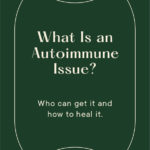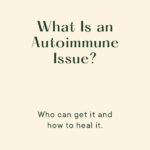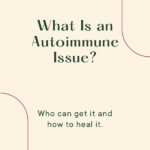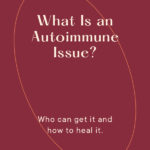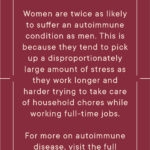An autoimmune disease is a broad term that encompasses all diseases, conditions, and syndromes in which the immune system attacks the body’s own cells. This can include skin cells, the nervous system, or even joints, and it typically leaves us feeling pain, soreness, and inhibited organ function.
If you have found yourself on this page, you may be suffering from an autoimmune disease, or suspect you have one, but we’re here to share that you can control your symptoms, soothe pain, and recover from your autoimmune condition.
What exactly is an autoimmune disease?
Normally, our immune system’s job is to keep us safe from harmful substances such as bacteria, viruses, toxins, and cancer cells. When we get ill, our immune system sends antibodies to fight off the threat; however, it gets confused because of constant inflammation and proteins that it needs to attack. When it has to attack something invading our system time and time again, it becomes hyper-vigilant.
Most of this is caused because our immune system is literally one cell layer away from our intestinal lining. When our gut becomes permeable, from consistent and constant stress, poor food choices, or even chemicals that our food is exposed to, toxins and proteins leak out and enter our bloodstream. Our body is quick to react to any pathogen it sees, however, it’s also a little bit lazy when it comes to identifying what’s what, which allows itself to save resources.
This means that as you eat things that cause gut inflammation and gut permeability, like gluten or dairy, your body sees that as the same proteins your thyroid makes, such proteins are nearly bio-identical. Which in exchange teaches your immune system to attack your thyroid when it’s doing its normal everyday functions.
The overactive immune system then gets overloaded and begins attacking itself. Confused and exhausted, it can’t always tell which cells are bad and which are our own. This can cause inflammation, hair loss, digestion problems, ulcers, and skin problems.
Doctors aren’t exactly sure what causes autoimmune disease, but there has been plenty of recent research that links autoimmune disease to factors such as environment, stress levels, diet, and sleep habits.
When one or more of these factors is imbalanced, we confuse our antibodies, which then turn on our own cells and begin to cause problems.
Who Can Get an Autoimmune Disease?
At the moment, women are twice as likely to suffer an autoimmune condition as men. This is in part because women tend to be on the receiving end of domestic violence, as well as verbal and emotional abuse. If you have ever read the book “The Invisible Load”, you’ll know that women also pick up a disproportionately large amount of stress, as we work longer and harder trying to take care of household chores while working full-time jobs. Recent studies show that even in the workplace, women are expected to handle organization and cleaning on top of their jobs.
Moreover, between skincare, makeup, and cleaning products, we also tend to be exposed to a lot more harmful chemicals in our daily lives.
Autoimmune disease also have a small genetic component, but maybe not in the way you would think. The gene pool only accounts for a 6-8% chance that you will develop the disorder. This does not mean that if someone in your family has an autoimmune disease you will definitely have the same one. However, what does run in families is eating habits, lifestyle, the way they respond to stressors, view the world, and deal with trauma and abuse.

Some Examples
There are currently more than 150 recognized autoimmune diseases. Some of these include:
- Alopecia Areata/Universalis
- Crohn’s Disease
- Hashimoto’s Thyroiditis
- Celiacs Disease
- Multiple Sclerosis
- Graves Disease
- Ulcerative Colitis
- Addison’s Disease
- Psoriasis
- Rheumatoid Arthritis
- Lupus
- Type 1 Diabetes
- Guillain-Barre Syndrome
Healing Autoimmune Diseases
Doctors typically recommend taking an immunosuppressant drug that subdues your immune system and stops it from attacking itself. They may also recommend painkillers and anti-inflammatory medications.
That being said, much of the time, Autoimmune flare-ups are caused by something in our environment, the food we are putting in our bodies, or chronic stress and unresolved trauma. Therefore, it’s important to evaluate the different factors in your lifestyle and environment that could be contributing, and try to improve them.
Diets such as AIP (Autoimmune Protocol) can help you to identify your triggers, eliminate them from your diet and therefore calm your inflammation and symptoms. It’s also important to reduce chemicals in your environment, reduce and manage your stress load and resolve past trauma that you may be holding onto.
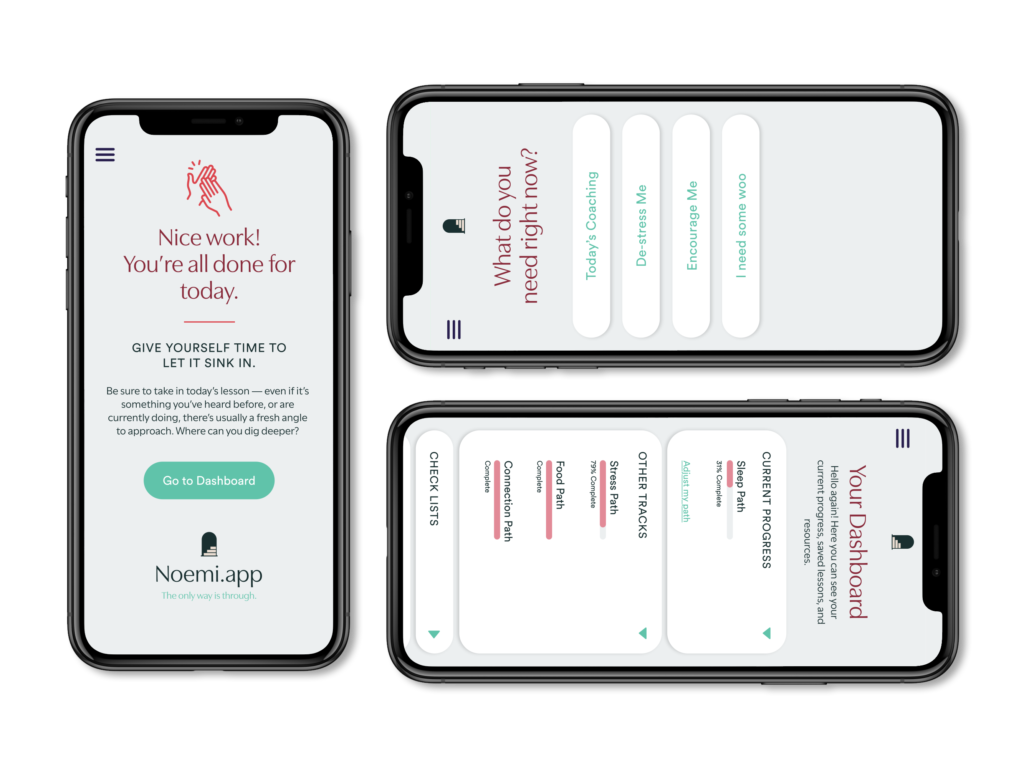
Your Daily™ Is Your Autoimmune Health Coach
If you are struggling with any of the aforementioned symptoms or have been previously diagnosed with an autoimmune condition, we invite you to try the Your Daily™ Health Coaching app.
Inside the Your Daily™ Health Coaching app, we help create a tailored plan to help you evaluate the areas of your life that you could improve your health and take little baby steps towards improving your habits and getting better. You can hone in on your stress management, your environment, your financial issues, or even your relationships to ensure you are supporting your body and your immune system in the way it needs.
Read next: The MindBody Connection






